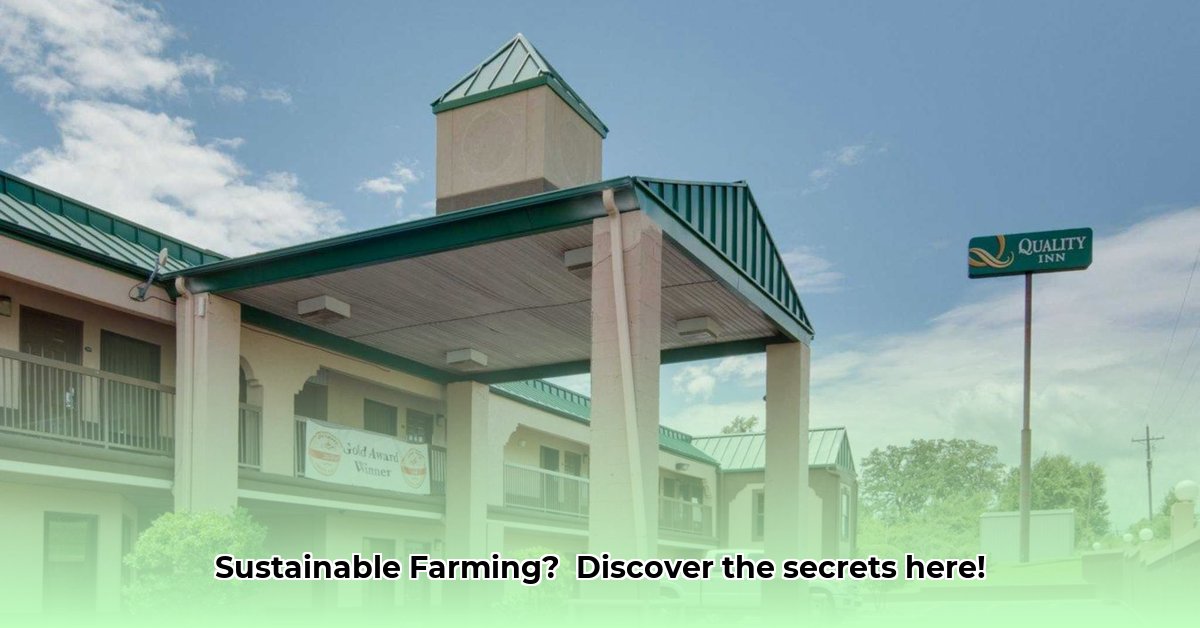
Tractor Supply's Role in Mount Pleasant's Sustainable Agriculture
Tractor Supply Company (TSC) holds a prominent position in Mount Pleasant, Texas, serving the agricultural community. This article investigates TSC's contribution to sustainable farming practices in the region, analyzing its current offerings, identifying areas for improvement, and outlining potential collaborative pathways toward a more environmentally responsible future. The analysis considers not only TSC's direct actions but also the wider ecosystem encompassing local farmers, environmental groups, and consumers. For more on sustainable farming practices, see this helpful guide.
What Tractor Supply Offers: A Range of Resources
TSC's Mt. Pleasant location offers a broad selection of products relevant to agricultural practices. This includes seeds (some organic), fencing materials, livestock feed, gardening tools, lawn care equipment, and irrigation systems. While the availability of these items suggests potential support for sustainable methods, the lack of transparent information on sourcing and production significantly limits a definitive assessment of their environmental impact.
The Sustainability Gap: Transparency and Accountability
A critical challenge hindering a comprehensive evaluation of TSC's contribution to sustainable agriculture is the absence of readily available data. Crucially, information regarding the sustainability of their products remains opaque. Questions regarding seed sourcing (GMO status, origin), the sustainability of harvested wood for fencing, and packaging materials remain unanswered. This lack of transparency makes it difficult to assess TSC's true environmental footprint and undermines its ability to demonstrably support sustainable practices. Isn't informed decision-making by local farmers crucial for the success of sustainable agriculture?
Without clear labeling and readily accessible information on aspects like water-conserving irrigation equipment and tools for Integrated Pest Management (IPM), assessing TSC's commitment to environmental stewardship proves challenging. How can farmers confidently choose sustainable options without complete and transparent information from suppliers? This lack of data represents a significant gap in their contribution to sustainable farming.
Opportunities for Improvement: A Collaborative Approach
Addressing the sustainability challenges in Mount Pleasant requires a multifaceted approach involving TSC, local farmers, environmental groups, and consumers.
1. Actionable Steps for Tractor Supply:
- Short-Term (0-1 Year): Conduct a comprehensive sustainability audit of its product lines, evaluating the entire supply chain from sourcing to packaging and transportation. Publicly releasing this audit's findings will build trust and transparency.
- Long-Term (3-5 Years): Develop and publish a detailed sustainability plan with specific, measurable goals for reducing waste, conserving water, and decreasing carbon emissions. Regularly reporting on progress will demonstrate commitment to continual improvement.
2. Actionable Steps for Local Farmers:
- Short-Term (0-1 Year): Actively inquire about product sustainability (sourcing, environmental impact), seeking certifications like organic labels. This direct farmer engagement can significantly influence TSC's procurement decisions.
- Long-Term (3-5 Years): Advocate for a broader range of sustainably produced goods within TSC, fostering a collaborative relationship focused on both business success and environmental responsibility.
3. Actionable Steps for Environmental Groups:
- Short-Term (0-1 Year): Undertake independent research to assess TSC's environmental impacts (waste management, transportation). Sharing findings can inform public discourse and encourage improvements.
- Long-Term (3-5 Years): Partner with TSC on educational initiatives to promote sustainable farming, potentially through workshops or consultation services that benefit both the store and the community.
4. Actionable Steps for Consumers:
- Short-Term (0-1 Year): Make informed purchasing choices, prioritizing products with clear sustainability certifications. Support businesses demonstrably committed to environmental stewardship.
- Long-Term (3-5 Years): Demand greater transparency and sustainability from businesses like TSC, letting them know that environmentally friendly practices are a key consideration when making purchasing decisions.
The Future of Sustainable Farming in Mount Pleasant: A Shared Vision
Mount Pleasant possesses significant potential to become a leader in sustainable agriculture. TSC's role is vital, yet achieving this shared vision requires collaborative effort. Increased transparency from TSC, combined with proactive engagement from farmers, environmental groups, and conscious consumers, is essential for cultivating a greener, more environmentally responsible agricultural landscape. The future of sustainable farming in Mount Pleasant rests on this shared responsibility.